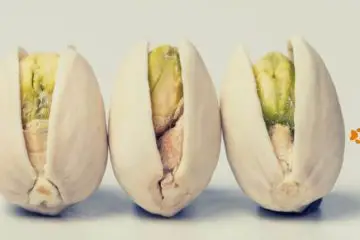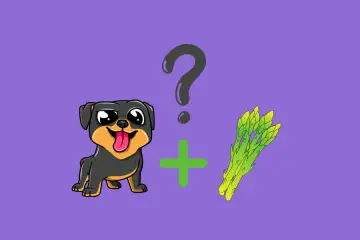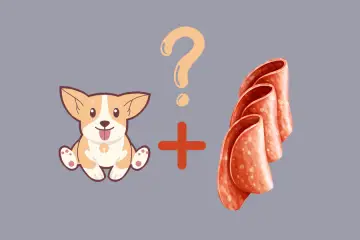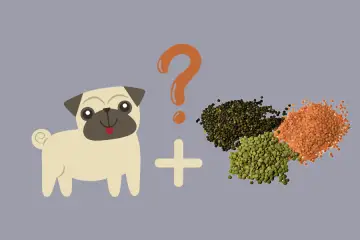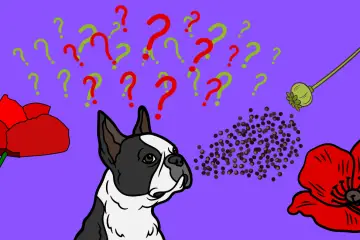Key Takeaways
- Raisins are poisonous to dogs and can cause serious health problems. ❌
- The exact toxic element in raisins is unknown, but they can lead to vomiting, dehydration, and acute kidney failure in dogs. ❌
- If you think your dog has eaten raisins, seek veterinary medical attention immediately. ⚠️
- There are no benefits to feeding raisins to dogs – there are plenty of safe alternatives. ❗
- Prevention is always better than cure – make sure grapes and raisins are stored away and never offered as a treat to your dog. ⚠️
Can Dogs Eat Raisins?
The short answer to this question is no, dogs should not eat raisins. Raisins can be toxic for dogs, so it’s important to keep them away from your pup. Although raisins do contain some nutritional value, they can also cause serious health problems for your pup if consumed.
Why Do Grapes and Raisins Cause Poisoning in Dogs?
Though the exact toxic element in raisins is unknown, ingestion has been associated with intense vomiting, dehydration, and an increased risk of acute kidney failure. In some cases, the effects have even been fatal. While it is encouraged for pet owners to keep their furry friends away from raisin-containing foods like cereal bars and homemade muffin recipes, it’s important to note that grapes also carry similar dangers.
While the exact toxic element in raisins and grapes remains unknown, many sources suggest that it could be the presence of tartaric acid, an organic acid found in grapes and raisins, or possibly a toxin produced by certain molds.
Editor’s Note
Being a veterinary clinic worker, I have witnessed cases of grape and raisin poisoning first-hand. It is a serious issue that can cause death in dogs, especially if not treated promptly. Induced vomiting is necessary in most cases.
What Should I Do If My Dog Has Eaten Raisins?
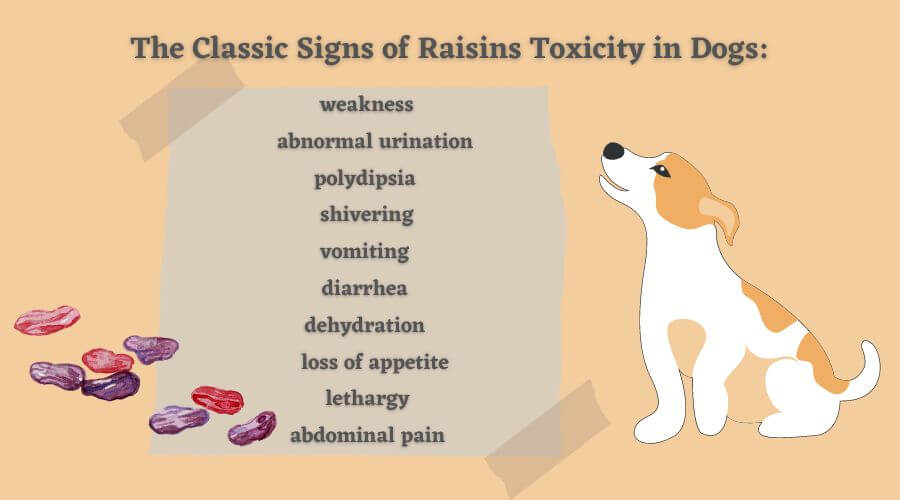
If you know or suspect that your dog has eaten raisins, seek veterinary medical attention immediately, even if the dog does not show any signs of illness. It is possible that the dog may not show any symptoms for 24 hours after ingestion, and it is important to get medical attention as soon as possible in order to avoid potential complications.
The classic signs of raisins toxicity include:
- vomiting or diarrhea;
- dehydration;
- loss of appetite;
- lethargy;
- abdominal pain;
- increased drinking and urination may also occur in extreme cases of raisin toxicity in dogs.
Are There Any Benefits to Feeding Raisins to Dogs?
No. While grapes and raisins are known to be nutritious, they are not suitable for dogs. But there are plenty of safe alternatives! Dogs can reap the same benefits by eating fruits and vegetables like blueberries, carrots, and bananas that are not toxic to them.
Friendly Reminder
Fruits should be treated as treats and should not replace your dog’s regular meals.
Can a Single Grape Kill a Dog?
It’s not likely, but it is possible. A single grape is enough to be toxic to dogs, and can even kill them after ingestion. While it’s not known exactly why some dogs are more susceptible than others, it is known that a small amount of grapes and raisins can cause severe kidney failure in some dogs.
Treatment
Treatment for raisin poisoning in dogs varies depending on how much they have eaten. In most cases, to assist a dog in expelling toxins, a veterinarian may administer an emetic such as apomorphine. This is often followed by activated charcoal to absorb any residual contaminants present within the gastrointestinal tract and intravenous fluids to prevent acute kidney failure.
To prevent vomiting, antiemetics should be prescribed, and the stomach can be safeguarded against uremic gastritis (which is damage to the stomach caused by a high BUN level). BUN, creatinine, calcium, phosphorus, sodium, and potassium levels are carefully monitored. If there is decreased urine production, it can be treated with dopamine or furosemide to help increase urine production.
Prevention Is Always Better Than Cure
If you’re a dog owner and have a bowl of grapes or raisins lying out on the table, hide them! Follow these guidelines to be safe:
- never leave grapes or raising lying around in the house;
- keep them stored away or on very high counters;
- make sure your family and friends are aware that raisins are bad for dogs;
- whenever asked “can dogs eat raisins?”, your answer should be straightforward;
- never reward your dog with grapes or raisins;
- take extra care when baking with these fruits around as well;
- chocolate covered raisin cookies are another toxin hazard for dogs who enjoy snacking on human food.
Can Dogs Eat Raisins? Now You Know!
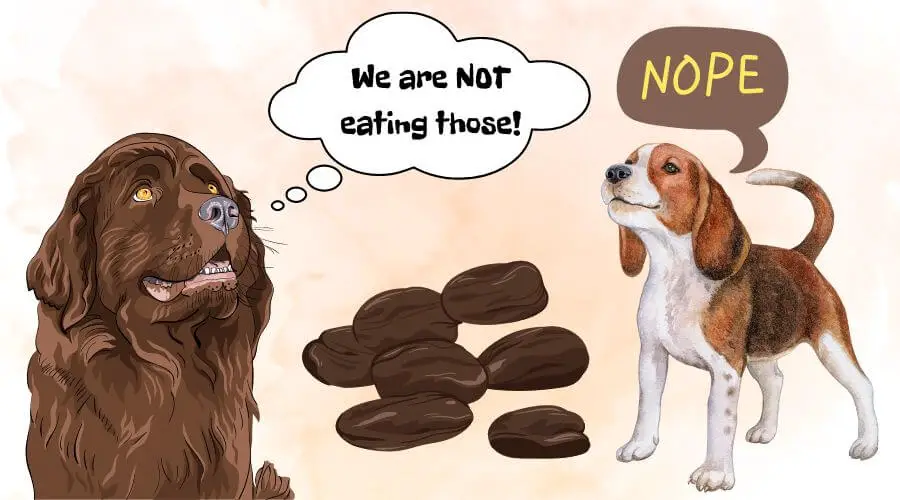
We hope now you understand the dangers of raisins and grapes for dogs. Let us emphasize that it is never a good idea to feed these foods to your dog. If you’ve been doing so without realizing how harmful they can be, stop right now! Grapes could lead to poisoning in dogs, which would require emergency veterinary care. Instead of offering your dog raisins, feed him berries and carrots or other treats that are safe for dogs to consume.
Frequently Asked Questions
What Happens if My Dog Eats 1 Raisin?
It is difficult to predict how a dog may react when they eat raisins as it can vary depending on their individual health and sensitivity. If your dog has eaten one raisin, watch for signs of vomiting, diarrhea, lethargy, or abdominal pain and contact your veterinarian if any of these symptoms occur.
What Happens if My Dog Eats Raisin Bread?
Unfortunately, raisin bread is still a source of raisins and can be dangerous for dogs. If your dog has eaten raisin bread, watch for the same signs mentioned above and contact your veterinarian immediately if any unusual systems arise. Additionally, you should monitor their urine output as well to ensure that they are not showing any signs of kidney failure.
Why Can’t You Feed Dogs Raisins?
Raisins are bad for dogs because they contain a toxin that can lead to kidney failure. Dogs who ingest raisins may experience vomiting, diarrhea, lethargy, and abdominal pain, all of which can be symptoms of kidney failure.
What Fruit Can Dogs Not Eat?
Generally speaking, fruit should be given to dogs in moderation. There are some fruits that may not be safe for your dog, such as grapes and raisins (which can cause kidney failure), citrus fruits (which can cause digestive issues) and persimmons or apricot pits (which can contain toxins). Additionally, avoid feeding dogs pitted fruits, like peaches, plums, and cherries as the pits can be a choking hazard.
Lucas Taylor is a veterinary assistant, freelance journalist and single dad who lives in the suburbs with his three pups: Ruby, Nala, and Woody. He has one cat named Pepper. When he’s not writing articles or working at the vet clinic, Lucas loves cooking French cuisine for himself and friends at home. One of Lucas’ favorite things to do is paddleboard with his son Noah and their canine companions. Pepper is the homebody of the bunch – she loves chilling on the couch.


